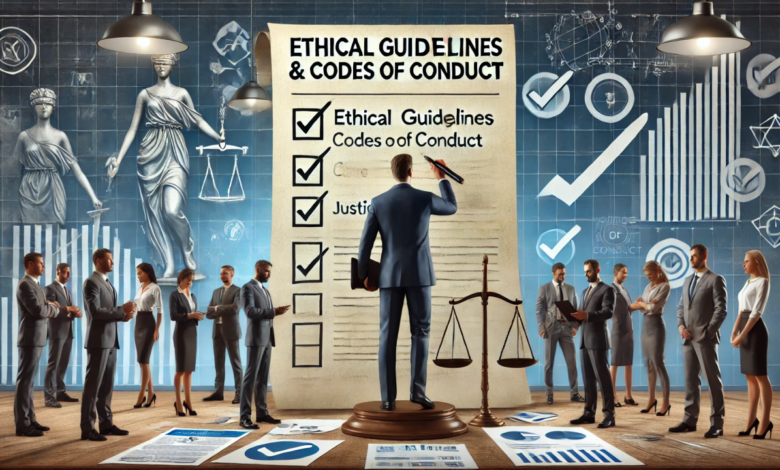
The emergence of artificial intelligence (AI) has sparked immense excitement, offering capabilities that reshape the way we live and work. From virtual assistants to autonomous vehicles, AI has seamlessly integrated into our daily routines, revolutionizing everything from language translation to automated coding:
- Autonomous cars? Absolutely.
- Real-time language translation? Without a doubt.
- Automated coding solutions? Definitely.
While these advancements bring undeniable convenience and efficiency, they also trigger complex ethical debates. The heart of these debates often revolves around how AI’s powerful functionalities can sometimes push against ethical boundaries.
Navigating Legal and Ethical Minefields in AI
AI consistently finds itself entangled in controversy, sparking discussions about its ethical application across the globe. The pressing question is: Where should AI replace humans, and where should we draw the line? What safeguards are in place to protect personal privacy and prevent violations of fundamental rights? And how do we ensure the responsible use of data that fuels these systems?
The 2023 Hollywood writers’ strike, for instance, highlighted one such ethical quandary: Even though AI can be programmed to write movie scripts, should it? Such questions spotlight the delicate balance companies must strike between leveraging AI’s capabilities and staying within the ethical and legal frameworks governing its use.
Legal Considerations in AI
In the U.S., AI regulation remains fragmented, creating ambiguity around the legal consequences of AI’s growing influence. While laws do exist to govern the outcomes of AI-related activities, there’s often confusion surrounding how these tools should be operated.

U.S. Vice President Kamala Harris speaks about Artificial Intelligence during a press conference on the first day of the AI Safety Summit 2023, in London, Britain, November 1, 2023 REUTERS/Maja Smiejkowska Avocat Oradea
Consider these legal considerations:
- Breaches of intellectual property laws
- Data privacy infringements under laws like GDPR
- Breaches of the California Consumer Privacy Act (CCPA)
- Violations of employment regulations
- Unauthorized use of copyrighted content
- Disputes tied to contract law when generative AI is involved
- Compromises to consumer privacy or PII (personally identifiable information)
- Inaccurate results from generative AI systems
11 Ethical Dilemmas in AI
Harnessing AI can undeniably boost efficiency, but this benefit may come with steep ethical costs. Focusing on AI ethics helps companies maintain good operational, regulatory, and reputational standing. Here are 11 key ethical issues to consider:
1. Job Displacement
Concerns surrounding automation’s potential to eliminate jobs are prevalent. The fear of AI-driven unemployment is widespread, with 81% of U.S. workers having read about such issues, according to CompTIA’s report. Three out of four workers express concern about how AI’s increasing automation might impact their livelihood.
2. Privacy Erosion
AI systems are ravenous consumers of data—much of it including sensitive personal information. The lack of transparency in how this data is gathered, processed, and stored raises red flags about who controls this information and for what purpose. Surveillance is another worrying aspect, as AI allows law enforcement to track individuals in ways that might infringe upon basic privacy rights.
3. Algorithmic Bias
While AI systems are neutral, they inherit biases from the data sets on which they are trained. This could perpetuate discriminatory practices, such as an AI-powered recruitment tool filtering out candidates from specific demographic groups, potentially leading to ethical and legal ramifications.
4. Security Vulnerabilities
AI systems can be exposed to cyberattacks, which could result in devastating consequences. For instance, malicious actors can exploit vulnerabilities to manipulate outcomes, as seen in incidents where AI was fooled into altering the behavior of autonomous vehicles or obscuring critical objects in surveillance footage.
5. Lack of Explainability
Understanding the rationale behind AI-driven decisions can be crucial, especially in critical sectors like healthcare or law enforcement. Without transparency, the reasoning behind certain AI outputs remains obscure, which could lead to dire consequences when human lives are on the line.
6. Elusive Accountability
AI’s growing role in decision-making complicates accountability. When a negative outcome arises, tracing responsibility can be a convoluted task. Is the company using the AI tool at fault, or should the blame lie with the developers? The search for accountability is a tangled web, one not easily navigated.
7. Deepfake Manipulation
The rise of deepfake technology has stirred ethical concerns. Deepfakes can fool sophisticated recognition systems, making it possible to impersonate individuals or spread misinformation, especially in high-stakes scenarios like elections or stock market manipulation. The ease of access to such technology exacerbates its potential for abuse.
8. Spread of Misinformation
AI-generated misinformation has the power to polarize societies and undermine trust. Particularly concerning is its role in shaping public opinion through the dissemination of false information. Once misinformation gains traction, it’s notoriously difficult to trace its origins or counteract its effects.
9. Exploiting Intellectual Property
AI’s exploitation of copyrighted content is under increased scrutiny, with lawsuits targeting platforms like ChatGPT for using the works of authors such as Jodi Picoult, George R.R. Martin, and John Grisham to train their algorithms. This raises alarm bells about how AI might jeopardize the livelihoods of creatives in the future.

Game of Thrones book series author George R.R. Martin is among the authors whose works have been spoofed by Chat GPT, according to The Authors Guild Avocat Bun Oradea
10. Erosion of Social Bonds
While AI can enhance user experiences with hyper-personalized content, there’s concern that this could erode social connections. If algorithms constantly reinforce your existing beliefs, they may stifle your ability to empathize with others and weaken societal cohesion.
11. The Race Between Ethics and Innovation
The pressure to be the first to release new AI technologies pushes companies to prioritize speed over ethics. Many firms launch products without thoroughly vetting their AI systems for ethical concerns or security vulnerabilities, raising questions about the long-term implications of this innovation race.
Efforts to Regulate AI Technology
While the U.S. lacks a cohesive regulatory framework for AI, it does have laws addressing privacy, data security, and discrimination. The White House has also proposed an AI Bill of Rights aimed at guiding ethical AI practices. On the global stage, the European Union has passed the groundbreaking AI Act, while China is continually refining its own AI regulations.
Can AI Ethics Be Universally Standardized?
Efforts to standardize AI ethics globally are still in their infancy, but progress is being made. UNESCO introduced the first international guidelines for ethical AI in 2021, though adoption has been slow. There’s hope that these guidelines will eventually form the foundation for a universally accepted ethical framework.
The Road Ahead for AI Ethics
The future of AI ethics is riddled with uncertainty, but one thing remains clear: Responsible AI is key to a sustainable future. A Forbes article stresses the importance of implementing ethical AI practices before the consequences of misuse become too significant to ignore. Companies and their stakeholders must ensure that ethical considerations are woven into the very fabric of AI, from its architecture to its real-world applications.
While there’s still much work to be done, momentum is building toward a more ethical AI landscape.





